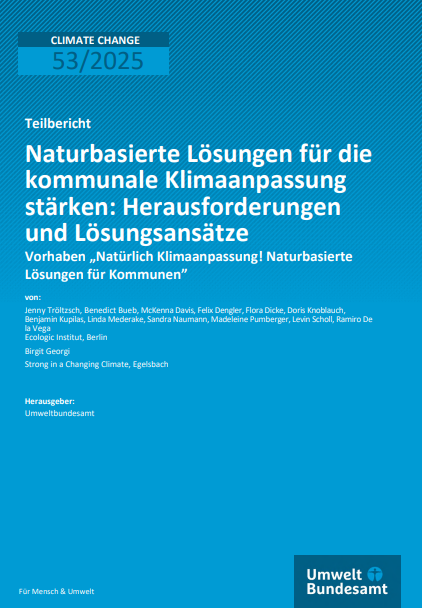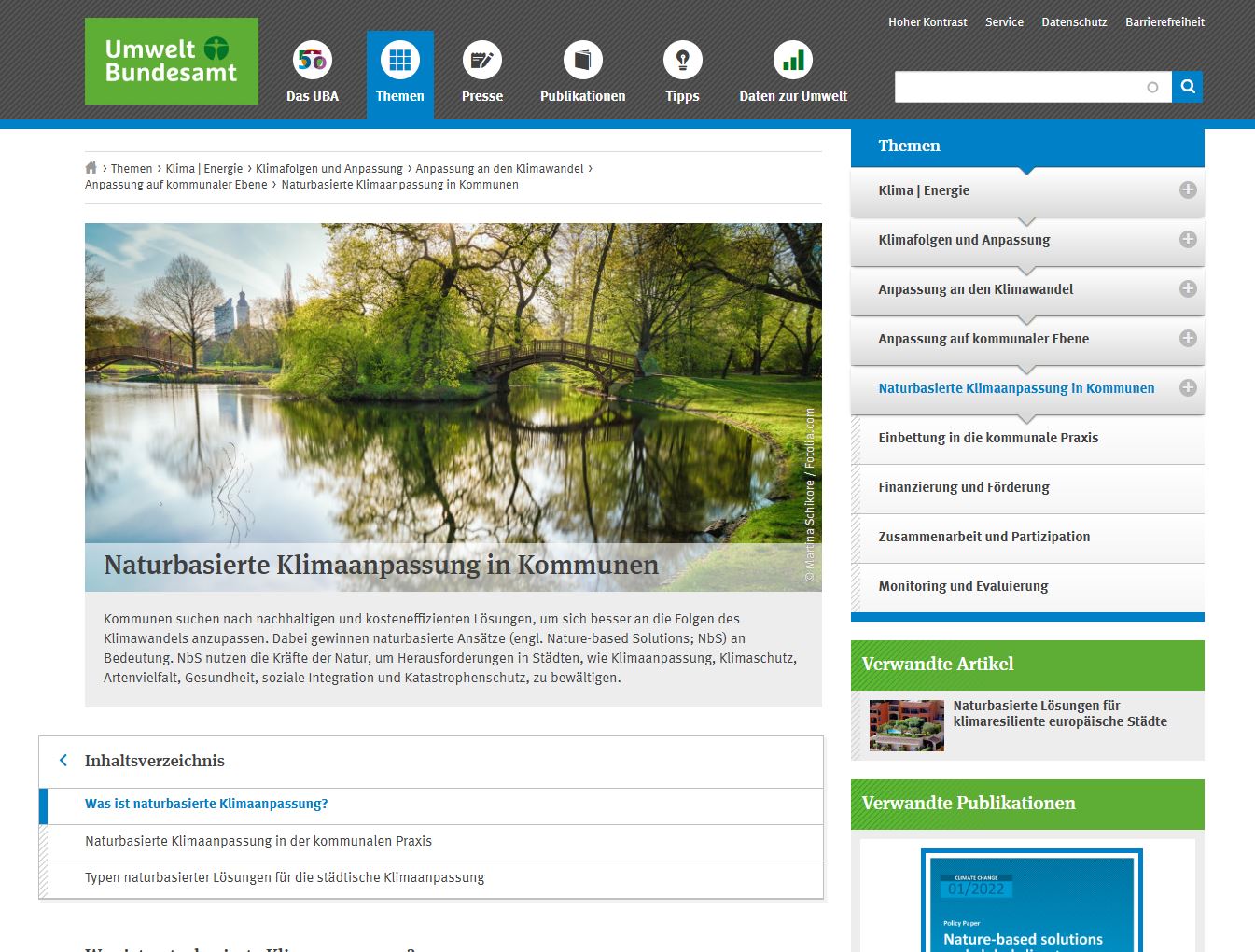Fit for Summer
How can nature-based solutions make communities more resilient?
- Event
- Date
-
- Location
- online
- Speaker
-
Benedict BuebSandra Naumann
In Germany, climate adaptation measures have gained increasing attention due to recent extreme weather events, such as the flash flood in the Ahr valley in 2021 as well as heatwaves and droughts of recent years. In this context, nature-based solutions are increasingly in focus. Such solutions, e.g. multifunctional green spaces or green buildings, can achieve a buffer effect during heavy rainfall events or cooling effects in densely built-up inner cities within the framework of water-sensitive urban development.
In the webinar "Fit for summer: How can nature-based solutions make municipalities more resilient?", the opportunities that nature-based solutions offer municipalities were presented and discussed with over 130 participants from municipalities, research and associations. At first Clemens Haße from the Federal Environment Agency talked briefly about the current federal political context, Grit Diesing from the Berlin Stormwater Agency explained the Berlin Sponge City Concept, which aims to reduce runoff and increase water retention. The resulting increased infiltration and evaporation rates are then to be harnessed in the spirit of a water sensitive city. The anchoring of the concept in Berlin goes back to the coalition agreements of 2016, and since then there have been resolutions in the district assembly supporting the climate emergency resolutions. The Berlin Stormwater Agency is a key player in its implementation. It contributes with its stormwater expertise to urban development processes, supports networking among relevant Berlin stakeholders, and also advises property owners on funding and savings opportunities for stormwater management.
Ms. Schwamberger from the city of Jena then presented on the "Climate Oases" project, which was implemented as part of Jena's climate adaptation strategy. The project aims to counter the expansion and intensification of urban heat islands by developing compensatory (green) spaces. Throughout the city, publicly accessible places with a pleasant microclimate were created or maintained. The interconnected, area-wide network of multifunctional climate oases created in this way is intended to improve the quality of life for citizens on hot days and provide other ecosystem services.
In the subsequent interactive part of the webinar, needs at the municipal level were recorded that are relevant to address in order for nature-based solutions to be effectively implemented. A particular focus was on needs for additional information for municipalities. Applications to address these information needs are being developed in the ReFoPlan project "Climate adaptation naturally! Nature-based solutions for municipalities". The project is carried out by Ecologic Institute on behalf of the Federal Environment Agency.
The webinar was held in German without interpretation services.




